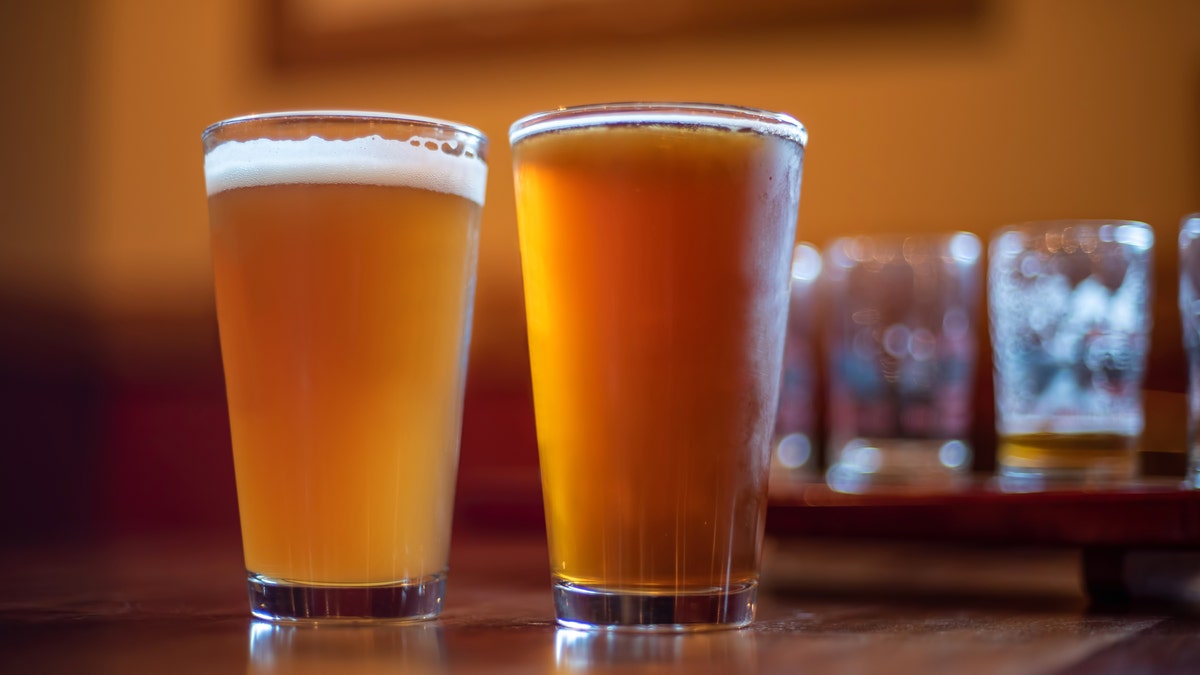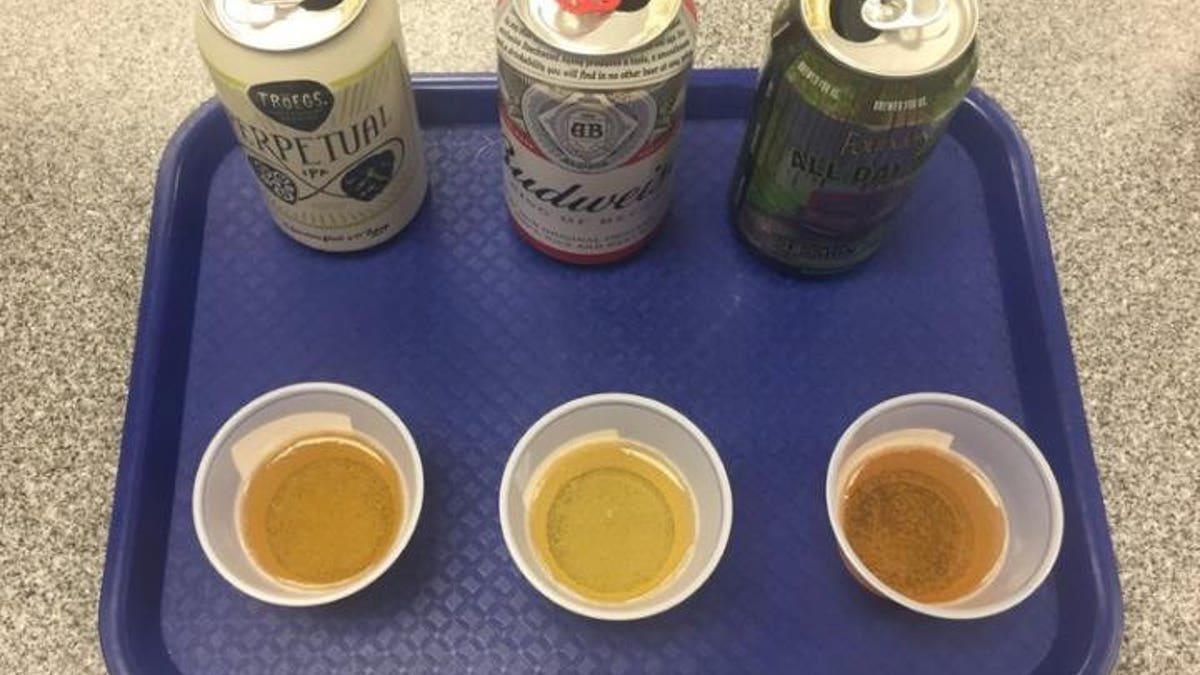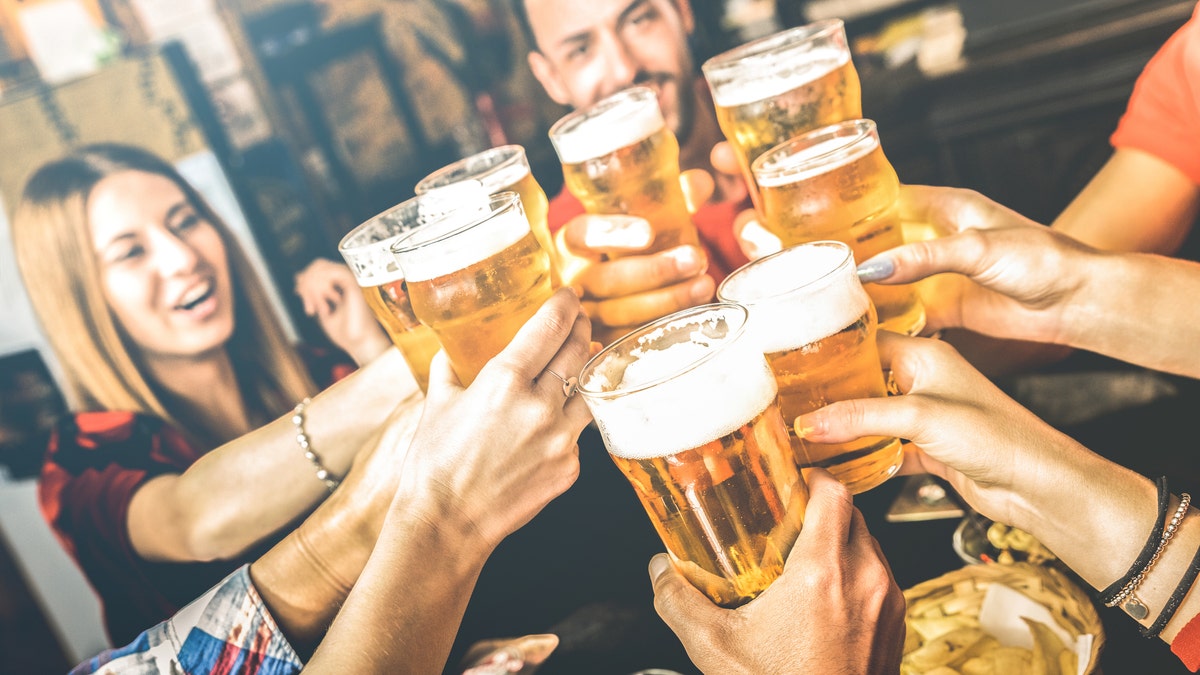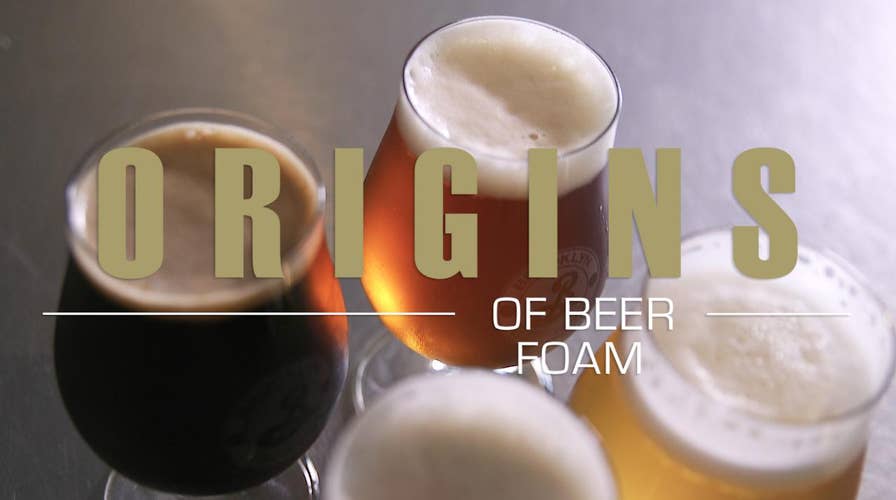Beer foam: Why it’s so important
Kyle Wilson, the Head of Brewing at Brooklyn Brewery, explains the science behind the bubbles on top of beer and how they impact your favorite drink’s aroma and flavor
Pale ale and IPA beer drinkers are more likely to be risk-takers and sensation-seekers, according to a new study.
Despite ale drinkers being perceived as calmer than their lager cousins they still have an edge, scientists believe. The unexpected results of the study involved personality assessments and blind taste tests to discover links when it comes to bitter taste.

Pale ale and IPA beer drinkers are more likely to be risk-takers and sensation-seekers, according to a new study. (iStock)
Researchers traditionally thought people who experience bitterness more intensely are more likely to avoid it and choose different tastes. But the Penn State Sensory Evaluation Center discovered people who seek novel sensations and perceive bitter tastes more intensely are more likely to prefer bitter, pale-ale-style beers and drink them more often.
TEXAS PROTESTERS DUMP BEER KEG ON STREET TO DEMAND BARS BE ALLOWED TO REOPEN
John Hayes, associate professor of food science, said: "Traditionally, most researchers find that people who experience bitterness more intensely avoid bitter food or drink -- so with heightened bitterness, they like it less, and therefore consume it less.
"But here, we find that people who seek higher sensations and are more risk-taking, they like bitter beer such as India pale ales, if they also have greater bitter taste perception."
In previous studies, links have been found between the liking of spicy foods and the high-sensation-seeking, risk-taking personality traits.
Lead researcher Molly Higgins said: "Our data contradict the classic view that bitterness is merely an aversive sensation that limits intake. We found that increased bitterness perception does not always lead to decreased liking and intake -- rather, it's a positive attribute in some products for some consumers."

A lager beer and two pale-ale-style beers were chosen as the test stimuli. (SWNS)
FOLLOW US ON FACEBOOK FOR MORE FOX LIFESTYLE NEWS
In the study, 109 beer consumers rated liking and intensity of two pale ales and a lager, and the intensity of two bitter solutions - quinine and hops extract Tetralone - under blind laboratory conditions.
Participants, an even gender split, were also asked to complete intake and personality questionnaires.
Researchers chose a lager style beer with low bitterness, Budweiser, a moderately bitter ale Founder's All-Day IPA Session Ale, and Troeg's Perpetual IPA as the strongly bitter ale.
"The interaction revealed liking of the pale ale increased with sensation seeking but only if quinine bitterness was also high,” Higgins said. "Intake models showed increased odds of frequent pale-ale intake with greater quinine bitterness and lower liking for lager beer.”
CLICK HERE TO SIGN UP FOR OUR LIFESTYLE NEWSLETTER

The unexpected results of the study involved personality assessments and blind taste tests to discover links when it comes to bitter taste. (iStock)
"These data suggest liking and intake of pale ales is positively related to sensation seeking and bitter taste perception."
The researchers say that this interest in bitter foods could give new rise to promoting healthy bitter foods.
"Avoidance of bitter foods can impact health negatively, because bitter foods such as cruciferous vegetables, green tea and grapefruit contain healthy compounds like flavonols, which are reported to have antioxidant and anticarcinogenic properties," Higgins added.
The findings were recently published in Food Quality and Preference.
CLICK HERE FOR FOX NEWS' CONTINUING CORONAVIRUS COVERAGE
This story was originally published by SWNS.

